Richard Del Connor | Interview | Shaolin Records
Richard Del Connor is a musician and composer who founded an independent label, Shaolin Records, in 1984. He began his career as a recording engineer in 1974 and worked as a studio designer for A&M Records, RCA, Capitol Records, and a dozen Los Angeles studios where he collaborated with artists such as Frank Zappa, Fleetwood Mac, and Supertramp in the early eighties.
In 1966, Richard Del Connor embarked on his musical journey as a blues guitarist, finding his place within various rock bands. It was during this time that he began honing his skills in songwriting, coinciding with his relocation to Newfoundland in 1970 following exile from the USA. By 1973, Richard had delved into the realm of recording engineering, mastering the art of 16-track recording. The following year, in 1974, he produced his first albums, marking the beginning of his ventures in music production.
Throughout his career, Richard had the opportunity to refurbish studios such as The Beach Boys, Village Recorder, RCA, MCA, and many others across Hollywood. One of the highlights came in 1984 when his rock opera, “Coyote in a Graveyard,” gained prominence, especially after a performance featuring Michael J. Fox.
Furthering his creative pursuits, Richard graduated from UCLA Film School in 1987, a milestone that paved the way for exciting projects. Notably, New World Pictures commissioned him to develop the first Music Movie, “Coyote in a Graveyard,” which received acclaim, even catching the attention of Steven Spielberg in 1989.
In 1984, Richard established Shaolin Records, a platform through which he released vinyl records in the 1980s, cassettes in the 1990s, and CDs post-2003, showcasing his evolving musical endeavors. Aside from his musical achievements, Richard is also a disciple of Grandmaster Wong Jack Man, renowned for his historic fight with Bruce Lee in 1964.
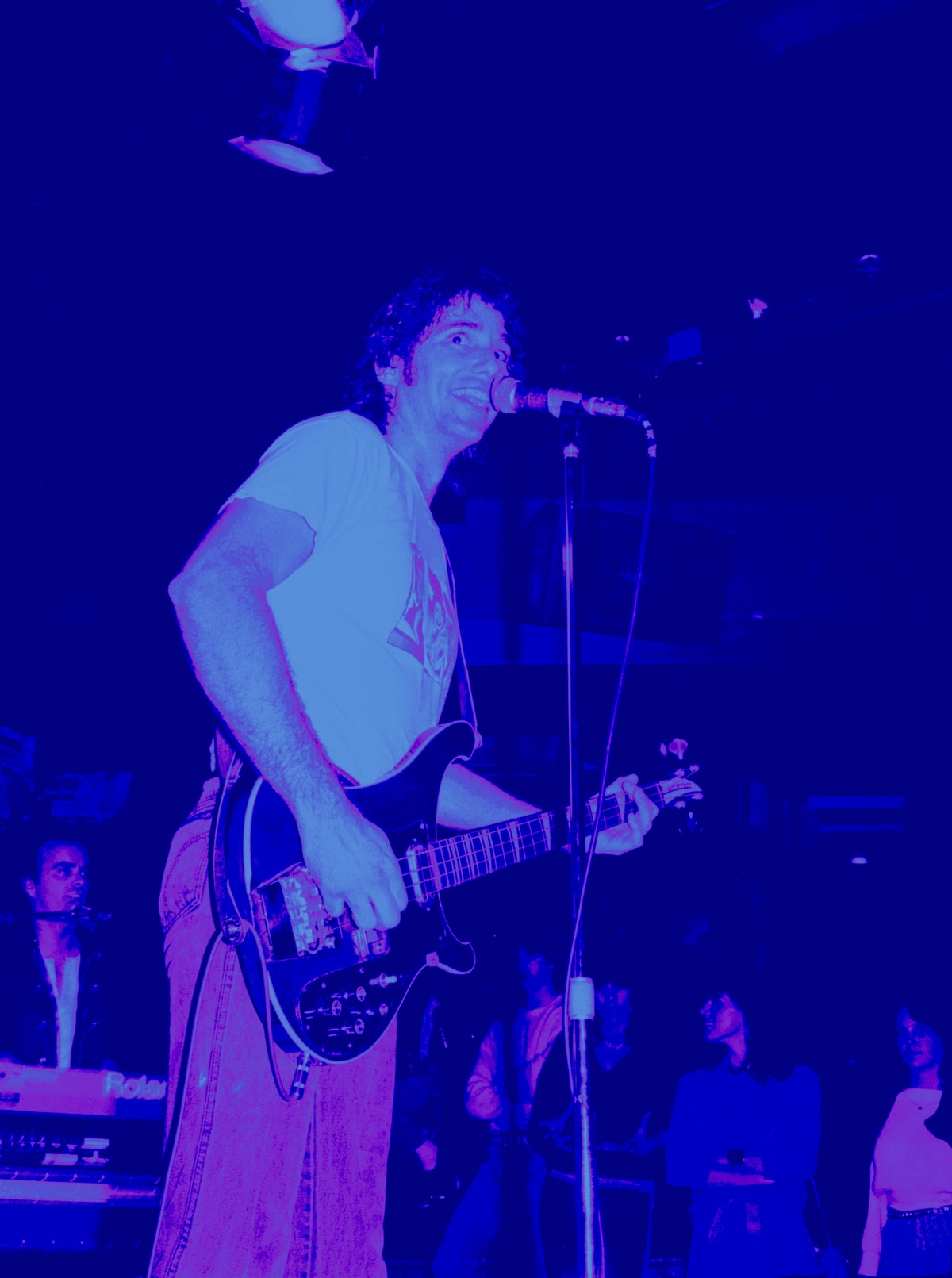
“I was born a musician”
Where and when did you grow up? Was music a big part of your family life? Did the local music scene influence or inspire you to play music?
Richard Del Connor: My family is opposed to my music career. My mother asked me last year, “Can’t you get a job?”
I started piano at age four or five, with my mother teaching me. She said she’d taught me all she could by age 7 and got me a teacher, Mrs. Stalnaker. I shouldn’t use her name because she was not a good teacher for me. I got as far as Debussy and wasn’t enjoying it… So I got a book called “Boogie Woogie For Beginners”. I think that was the title. I looked for it online. It had a “black-faced” character on the cover due to racial prejudice in the 1950s. I loved playing Boogie Woogie, and my left hand was getting pretty good as I sat on stacked phone books on the piano bench. I was a kid.
Then at age 10, I decided to play trombone. My role model uncle, Dr. Richard E. Warner, played trombone, so I thought that might be cooler.
I loved playing the song, ’76 Trombones’ and ‘When the Saints Go Marching In’. I was 1st Trombone in the John G. Marvin Elementary School in San Diego, California.
In 1964, I was ten years old in the 4th grade. Mensa was trying to snag me. They wanted me to skip grades because I was a straight-A student. My dad is a small-minded fool who called me “Brain,” like my classmates since 2nd grade at age 8.
The elementary school principal was one of the few people in my life to honor me for my intellect. He kept me out of class to make science projects and helped me create lectures on “Photosynthesis,” “Reptiles,” “Enzymes,” and of course, “Dinosaurs.” I was bussed to other schools and gave lectures to thousands of students at age 10.
Regis Philbin had a television show in San Diego and had me do a 1/2 hour debate with teachers. He said, “You held your own.” I was arguing against “Bell Curves.” Now I know I was wrong. I have developed a new form of Psychology using my “5 Soul Theory Of Richard Del Connor” to explain how people think and why they think the way they do from birth.
In 1966, at the age of 12, when fellow students asked, “Do you like the Beatles?” I replied, “No. I like the The Dave Clark Five better… they are more manly.” I thought The Beatles were less masculine.
I believe it was the Christmas of 1967 when my neighbor, the Vice President of The Beatles Fan Club in San Diego, gave me the album ‘Revolver’. Since then, I have been a devoted Beatles fan. Additionally, I had been experimenting with LSD since 1966, which led me to appreciate the spirituality of George Harrison, the radicalism of John Lennon, and the harmonies of Paul McCartney. I began performing songs by them in my Junior High band, including ‘Hello Goodbye,’ ‘Taxman,’ and ‘If I Fell’.
I started playing the electric guitar before Jimi Hendrix released ‘Are You Experienced’. My drummer, named Thick, had an older brother who worked in a record store and brought me an advanced release. I was sold for the rest of my life. The last cover song I ever performed onstage was during the 1980s, ‘Wind Cries Mary’. I performed it with my band on electric guitar, playing the solo like Jimi. The excitement of that moment still gives me goosebumps. I even performed ‘Wind Cries Mary’ on acoustic guitar until 1991 in many clubs.
In 1966, when I told my parents to return my trombone because I was going to play electric guitar, they cashed it in and refused to buy me a guitar, referring to rock and roll as “colored music” back then. So, I had to get a paper route and save enough to buy a red Fender Mustang in 1966 on payments with my paper route deposit.
I had to make a choice between being a soloist like Jimi Hendrix or a singer-songwriter like John Lennon. I chose to be a singer-songwriter and searched for guitarists who could solo better than me. I only ever found two guitarists better than me. Unfortunately, both were alcoholics and…
I was exiled in 1970 for LSD and marijuana sales. I decided I couldn’t depend on my parents for money.
The Newfoundland years have interesting stories and were part of my development.
Who were your major influences?
My 5 Soul Theory is a new viewpoint of character and personality and perhaps the afterlife. This book will be a part of every conversation of mine from now on because it will revolutionize psychology and psychiatry.
Guitar influences: Jimi Hendrix, Jimmy Page, Johnny Winter, Rory Gallagher, and Mick Abrahams (the only one I didn’t see in concert).
Bass influences: Burns Kellogg of Mint Tattoo (very influential to me), Felix Pappalardi of Cream and Mountain, NOT Jack Bruce or Eric Clapton. I walked out on Eric… what a loser…
Drum influences: Ringo Starr, Charlie Watts a little, and the drummer of the ‘Still Alive and Well’ album by Johnny Winter. I forgot his name, but I jammed to that record daily for a couple of years before I allowed myself to record my drumming in 2009 on. I used to play several songs on that album in the 1970s. Johnny didn’t influence my slide guitar playing as much as Rory Gallagher who I saw 7 times in concert. My favorite guitarist of all of them.
When Rory passed, his brother Donal contacted me and asked to use my song, ‘Laundromat’ on a memorial album to Rory. I have a cassette of that somewhere that he sent me. I recorded it in 1976 when I was a record producer/recording engineer at Bonita Studio near the Mexican border.
I remodeled that Bonita studio and every studio in San Diego hired me to remodel theirs after that. Then they somehow heard about me in Los Angeles and hired me to remodel The Beach Boys Studio in Santa Monica in 1978. I took that opportunity to move to L.A. with my one bandmate who would accompany me, Dann Link. We moved into a home in Venice with a drummer… many stories there…
Before leaving for L.A. in 1978 I had submitted my song, ‘The Pauper,’ recorded 16-track on the Stevens machine I was trained on to be a recording engineer. When I was living in Venice, a few houses from the V-13 headquarters (more stories) I was notified that I’d won the San Diego KPRI Radio “Battle of the Bands.” I had to return to San Diego and put together a new band to receive my reward of one day in the 8-track studio Dr. Sound. I talked them into two days and cut some cool songs like for instance ‘Cold Day In Hell’.
When I was remodeling The Beach Boys Studio, the head engineer of The Village Recorder hired me as a full-time carpenter for two years. That’s how I worked with Frank Zappa ‘Sheik Your Bootee,’ Fleetwood Mac ‘Tusk,’ and Supertramp ‘Breakfast In America’. Many stories there…
When I was in Newfoundland, I was adopted by the wealthiest family, and they put me in Opera and Music Theory lessons. I am a disciple of Gwent Lewis, a famous Irish opera singer who retired in Newfoundland.
I was later trained by Seth Riggs, who was Michael Jackson’s vocal coach. After a couple of months, Seth tested me to prove his point by first having me sing all over the place some difficult scales. Then he said, “You have no problem transferring from your chest voice to your head voice. Tom Petty would give his right arm to sing like you. You don’t need lessons, you need a singing career. There isn’t anything you can’t do. I don’t want to take any more of your money. Go record albums!”
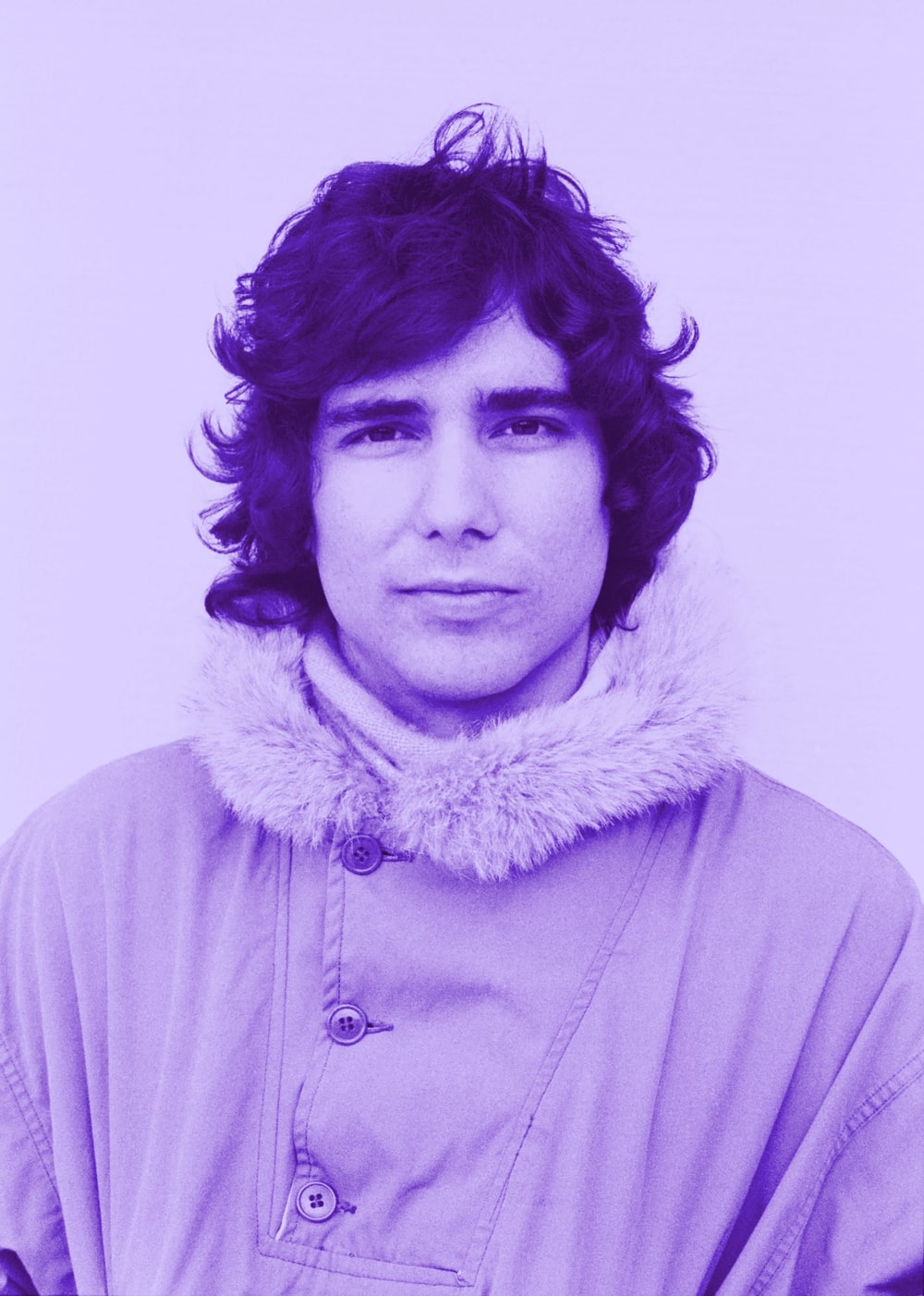
Was there a certain moment when you knew this was it and that you want to become a musician?
I was born a musician. I’ve listened my whole life to parents and relatives denouncing music or a career in entertainment.
Tell us what inspired you to pick up a flute?
A dream. A day later, I had a used flute. 22 days later I was performing in 1977.
I am currently publishing what I could find of the rock opera ‘The Pauper’ that was my dream. I couldn’t find all of it, probably unfinished anyway. I hadn’t seen it since I moved to L.A. in 1978.
So I am publishing the book Bat Cave Gold Mine: Plus: 1977 Rock Opera The Pauper. It is in presale at Amazon. It is the reason I picked up the flute.
I love playing the flute. When I moved to L.A. in 1978, we got a new drummer, Bill Stewart, the best drummer I have ever played with or heard. He could play everything that Palmer of Emerson Lake & Palmer could play. He’s the only drummer I know who can keep up with him. Stories about Bill Stewart. When I was being chased and thought I would be assassinated in 2012 by hitmen and… I dumped a whole bunch of songs onto the internet. I released the album, ‘The Rich: Live In Venice’.
That is one of my highest achievements. The most amazing band I’ve ever performed with. Vinnie Laurie quit performing to write Mel Bay guitar books in 1981. Bill Stewart retired with a huge paycheck putting up satellites. I kept going.
I became a session bassist for a couple of years and performed with a dozen bands. One of them was Alyssa & The Nomads. We recorded one song, ‘Living Underground’,’ about 1982.
I found a reference to that album recently. That song was included on an album collection produced by Ethan James.
I recognized him as my favorite bassist, Burns Kellogg. He complimented my bass playing. I told him, “I had a great teacher.” Somehow, we never got a chance to talk so I could explain to him that HE was my “great teacher.”
That album ‘Level 1’ has a poem, “The Teacher Was He,” written to Burns. I don’t know if he ever heard it.
Listen to the song ‘Daryoon’ on the ‘Christ Killer’ album for my credit to Rory Gallagher as my slide guitar mentor.
I think I made a slight mistake by always promoting myself as a singing guitarist. I only play for the song, not my ego. So I’ve never shown off or tried to impress anyone. But with that guitar strapped to my neck, I’ve never gotten the credit I deserve as a singer.
Jim Morrison was my biggest influence as a singer. I have spent hundreds of hours singing to his albums, especially ‘The Soft Parade,’ although I have favorite songs to sing of his from all his albums. I used to perform ‘Peace Frog’ in the mid-seventies on bass and vocals.
Bands whose songs I covered in the seventies:
Johnny Winter
Rory Gallagher
Mountain
Pink Floyd
Savoy Brown
Aerosmith
Led Zeppelin
The Beatles (In the 60s)
The Rolling Stones (In the 60s)
The Animals (in the 60s)
Fleetwood Mac (Peter Green)
I worked with Fleetwood Mac and hung out with them for a year. I designed and built all by myself the Fleetwood Mac rehearsal home in Mick Fleetwood’s home.
I built the rolling cabinet in Frank Zappa’s home studio you can see in some interviews with all his outboard gear.
I was hired by Badfinger for a few months to replace their bass player who quit. I lost the gig when he came back to use my riffs on their next album.
I played a movie soundtrack with Mick Fleetwood on drums, Supertramp pianist and sax, Ike? The guitarist of Frank Zappa, and me, Richard O’Connor on bass. ???
That may have damaged my career. The next year in 1981, I decided to modernize my name as Richard O’Connor instead of Richard Del Connor.
I became a Freemason from 2007 to 2015. They made me drop the “O” and be Richard Del Connor, my legal name, instead of Richard O’Connor, my professional name from 1980 to 2007. Both my kids have “O’Connor” for the names.
Rory Dibden O’Connor
Caitlin Marie O’Connor
“Dibden O’Connor” was my great-great-great-grandpa who was one of the first in California during the 1948 Gold Rush. He made a lot of money and established the San Pedro Bay with his fish market…
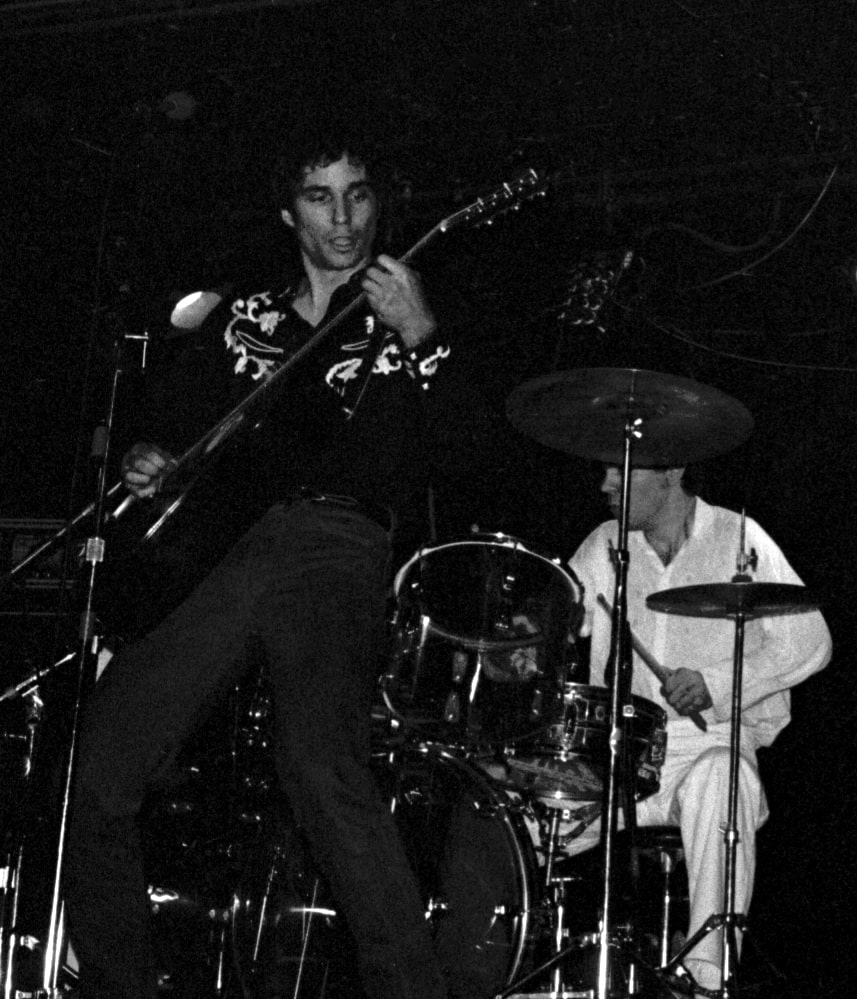
Was Lotus your first band ever? You later change its name to The Rich. Tell us about the material you played? Was anything released back then?
I was exhiled from the USA in 1970 for LSD and marijuana trafficking. I’d played in Jr. High and high school bands before being exiled. Then I played in a couple of interesting bands in Newfoundland where we started a riot once. Lotus was the first band I recorded a complete album with.
My first band at age 12 and 13 in 1966 and 1967 was ??? I met up with one of my bandmates, Bob Morris, about 2014. He kept calling me, “He’s one of the original hippies! He’s the real thing… the real deal.” That’s because I used to sell him acid. I’ve got a good story about being on acid in his closet…
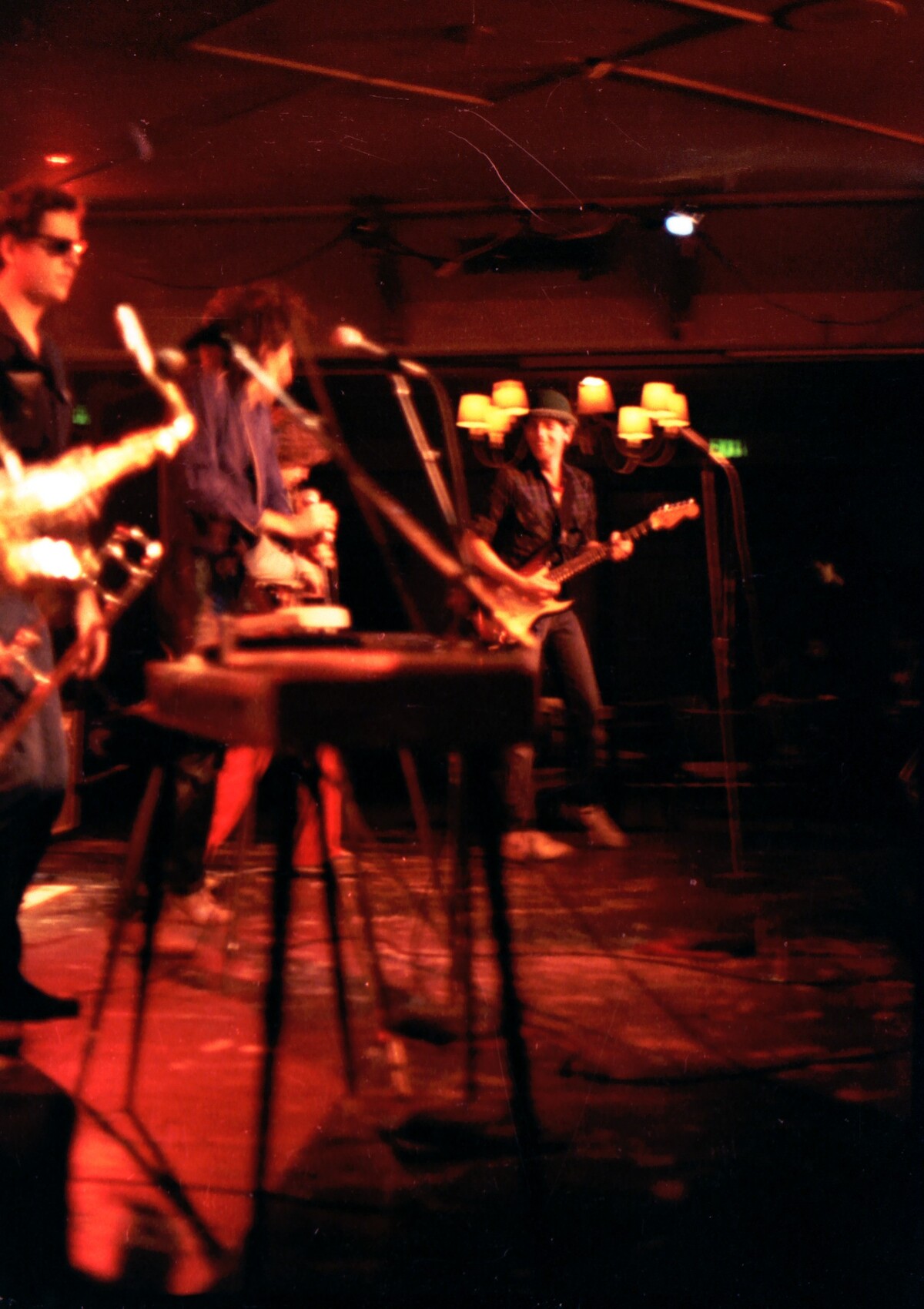
I really can’t remember our band name. I should’ve asked him.
I confess to not believing that a music career was possible from 1966 to 1970. I didn’t dream of being a music star. My parents discouraged it and I never met a star or knew anyone trying to be a rock star… I just played my guitar for fun, for me.
It wasn’t until I was exiled to St. John’s, Newfoundland, that I poured my soul into songwriting and psychedelic poetry like Jim Morrison.
Before I forget. I dedicated one of my poetry books to Jim Morrison. I believe that I have fulfilled his dream of being a published poet although I’ve yet to achieve any fame for it.
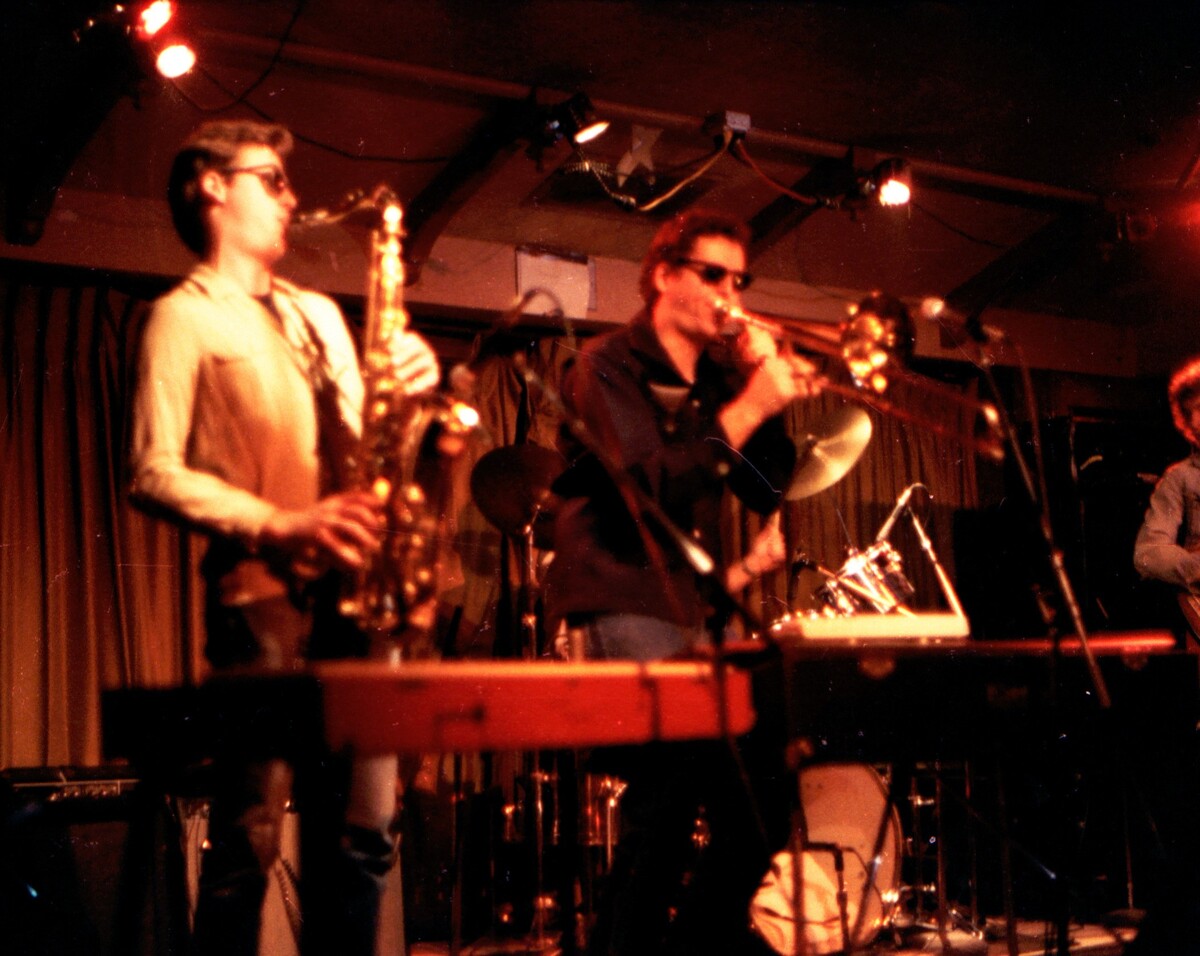
Did THC The Hippy Coyote follow?
Michael J. Fox created The Hippy Coyote in 1984 by jamming onstage with my rock opera: ‘Coyote in a Graveyard’.
I call that band, The Rich, but really, I just considered it a rock opera with a unique band:
A Newfie on guitar. Can’t remember his name. He didn’t show up at Cherokee studios for the album which I released this year: ‘Coyote Graveyard Original Soundtrack’.
This album is a unique experiment. I wanted to create “an album” with an “A-side” and a “B-side”.
So it is two songs with all the individual songs not broken apart.
Michael became my friend and got New World Picture to give me a movie deal… because he wanted to star in it.
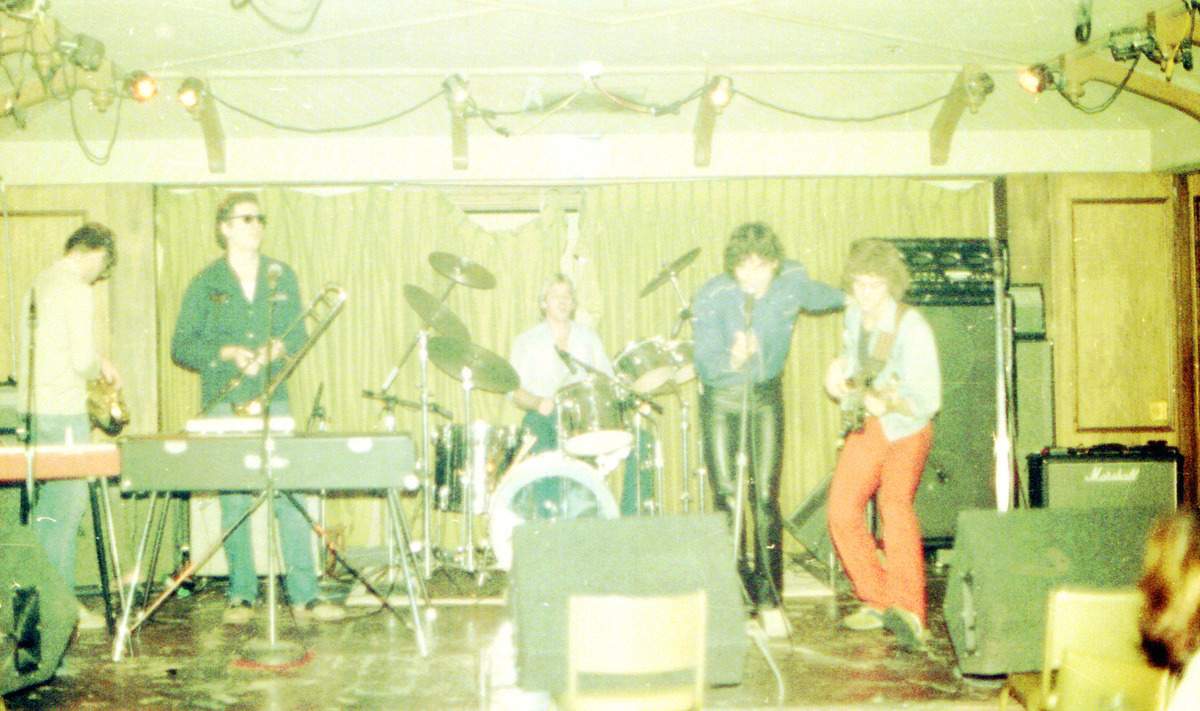
What led you to form Shaolin Records? How many records did you release with it?
First record of Shaolin Records: ‘Temptation’ by Richard O’Connor & The Rich, September 9, 1984.
Every one of my friends said, “Don’t do it!”
Although they were right, I’ve been able to release my stuff despite not having a record label.
I’ve been a one-man operation and was homeless from 2011 Christmas to 2019 Halloween.
How did your projects follow?
Marriage and children keep interrupting the flow. I’ll count up my releases.
Since I release everything at CD Baby: maybe you have access to that info.
I have one release at Bandcamp, American Zen. ‘End of the Line’. I put a lot of work into it.
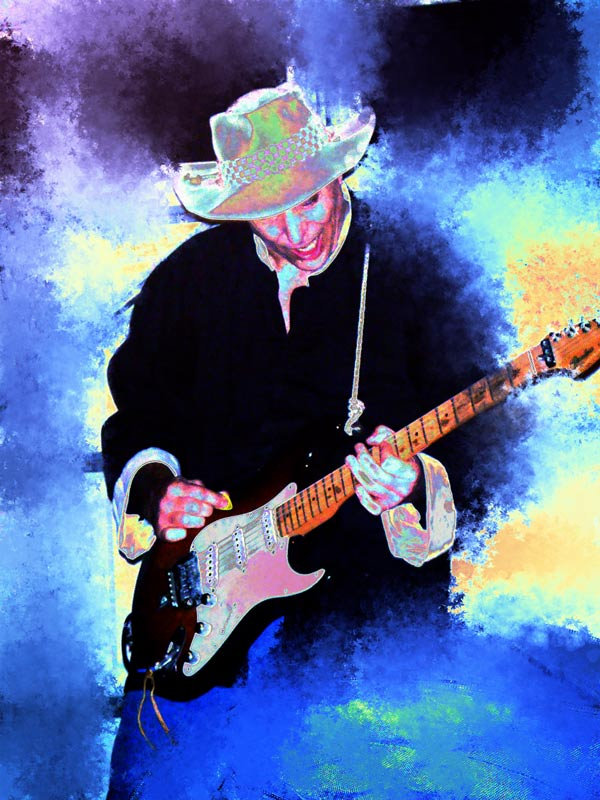
What currently occupies your life?
I had cancer chemotherapy, radiation, and surgery in 2021. In 2022, I recuperated. Now I’m starting everything in my life from scratch. My kids and ex-wife are in Utah. I’m on top of a 3,000′ mountain with my black cat named Bear.
I joined UCLA in 1984 to make music videos. I graduated in 1987 after producing all the REO Speedwagon music videos, Stanley Clarke, Smokey Robinson, commercials, special EFX, and Lighting Director for MTV.
Then I got married and dropped out of the movie and music video business until now. I just bought a Nikon Z6II, 12 LED lights, shotgun mics, podcast mics, green screen, and…
I’ve begun shooting a package of 30 music videos titled: “Kung Fu Cowboy Songbook 2023”.
It is my understanding that I understand nothing about the current state of the entertainment business.
Albums don’t exist?
I make rock operas?
I write stories?
I write epic poems over 10,000 words each.
So I decided to just do what I feel like doing / want to do / think would be efficient:
I will produce 30 music videos which may become 30 Music Movies.
These 30 songs will be from the album: ‘Kung Fu Cowboy Songbook 2023’.
This album will be these 30 solo live songs performed with my new electric guitar named “Tiger Buddha” guitar. PRS 954SE Gold Black burst.
Then I will overdub these live songs to make the album songs. Opposite of making music videos from the album recordings.
Then: I will record another 30 songs next year: ‘Kung Fu Cowboy Songbook 2024’.
So I can be caught up with these dozens of songs I’ve written since moving indoors in 2020.
Also: I’ve been playing less music and publishing books at Amazon as “Richard Del Connor”.
I published 22 books in 2022.
Then I have to publish these books at Barnes & Noble and Apple iBook’s.
Then I have to make audiobooks of these 30 books for Audible and Findaway Voices.
Then I have to advertise these books to make money like a real book publisher.
Since we can’t discuss all of these topics and I’ve got several more including a nonprofit and a foundation I founded, American Zen Peace Foundation to “End All Wars”.
Klemen Breznikar
Headline photo: The Rich in 1981
Shaolin Records Official Website

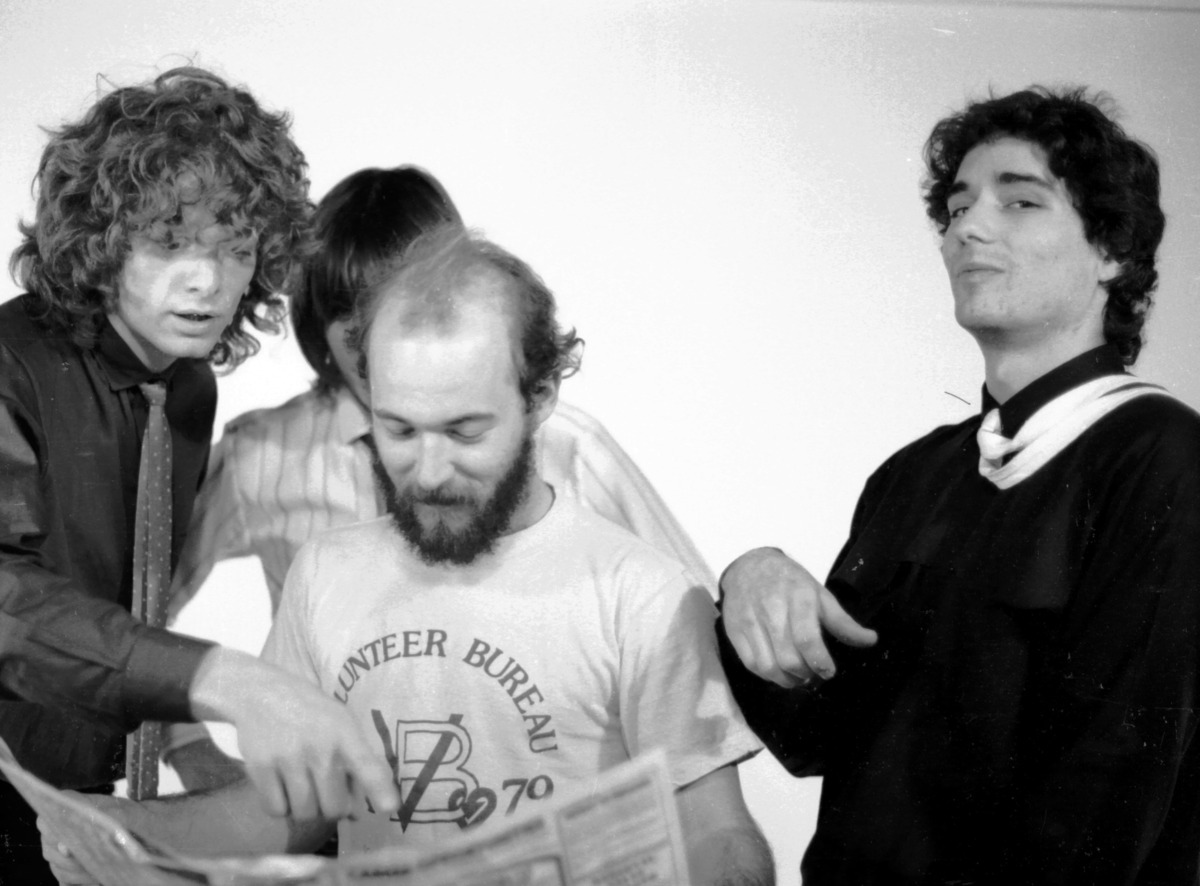
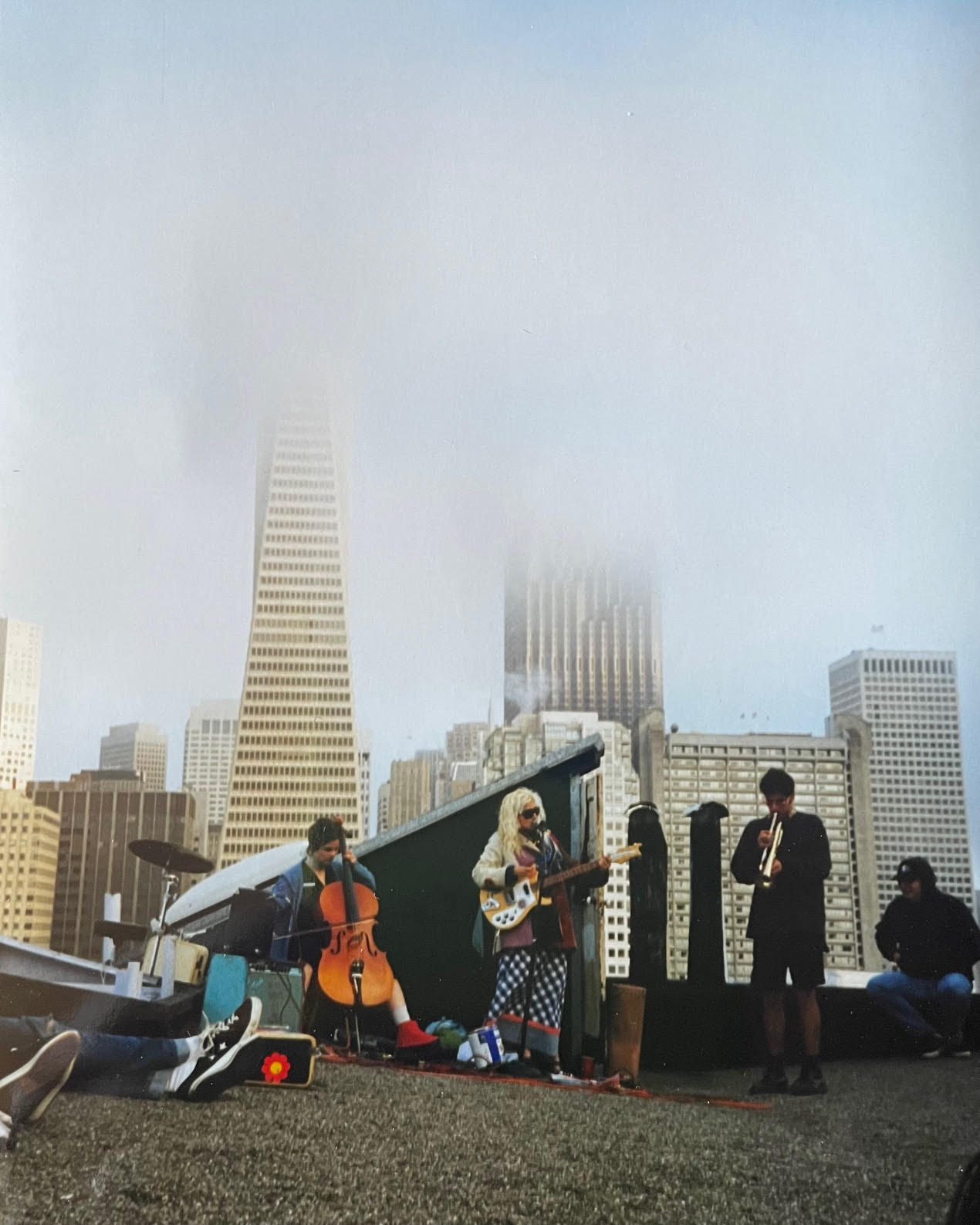
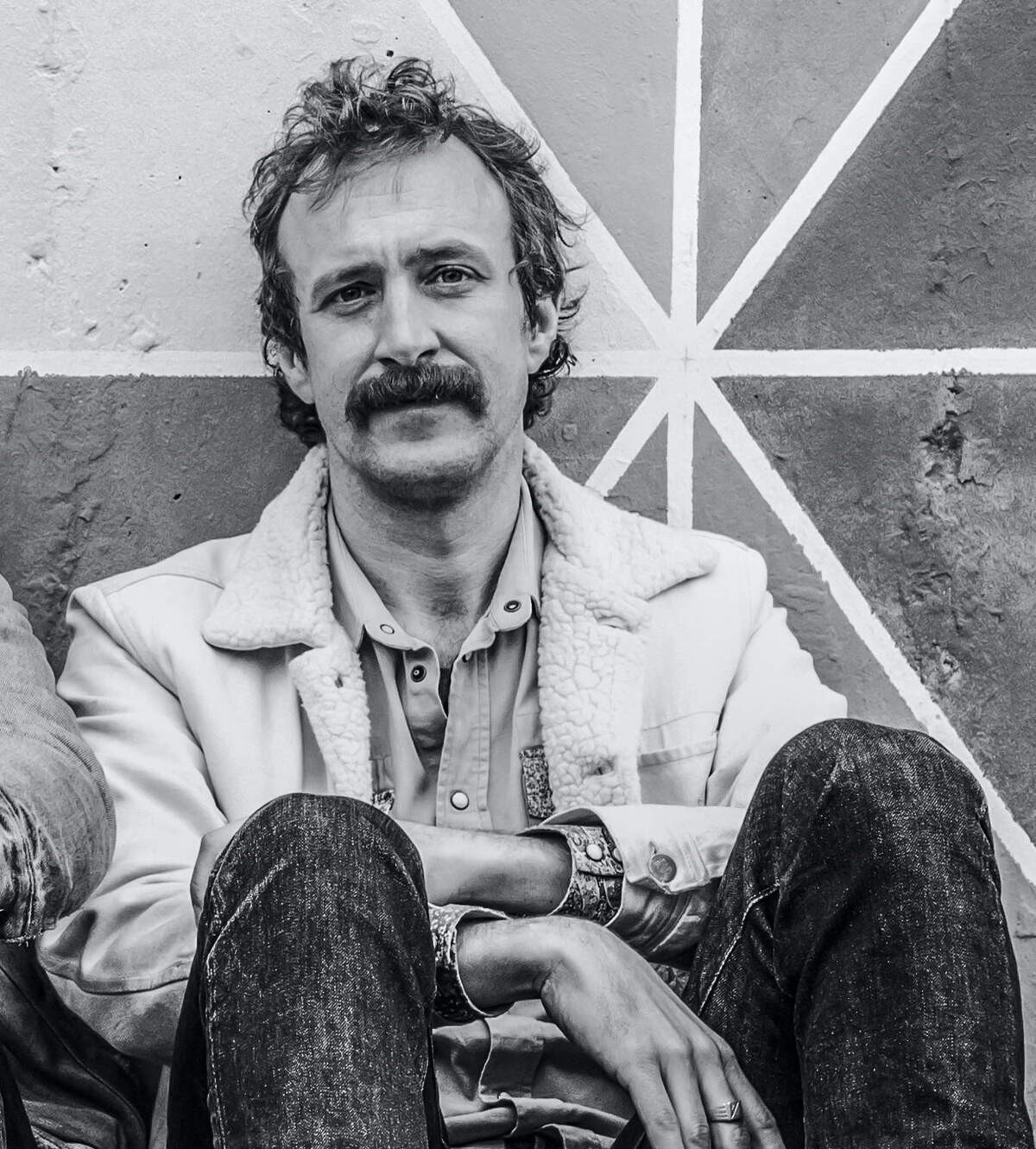
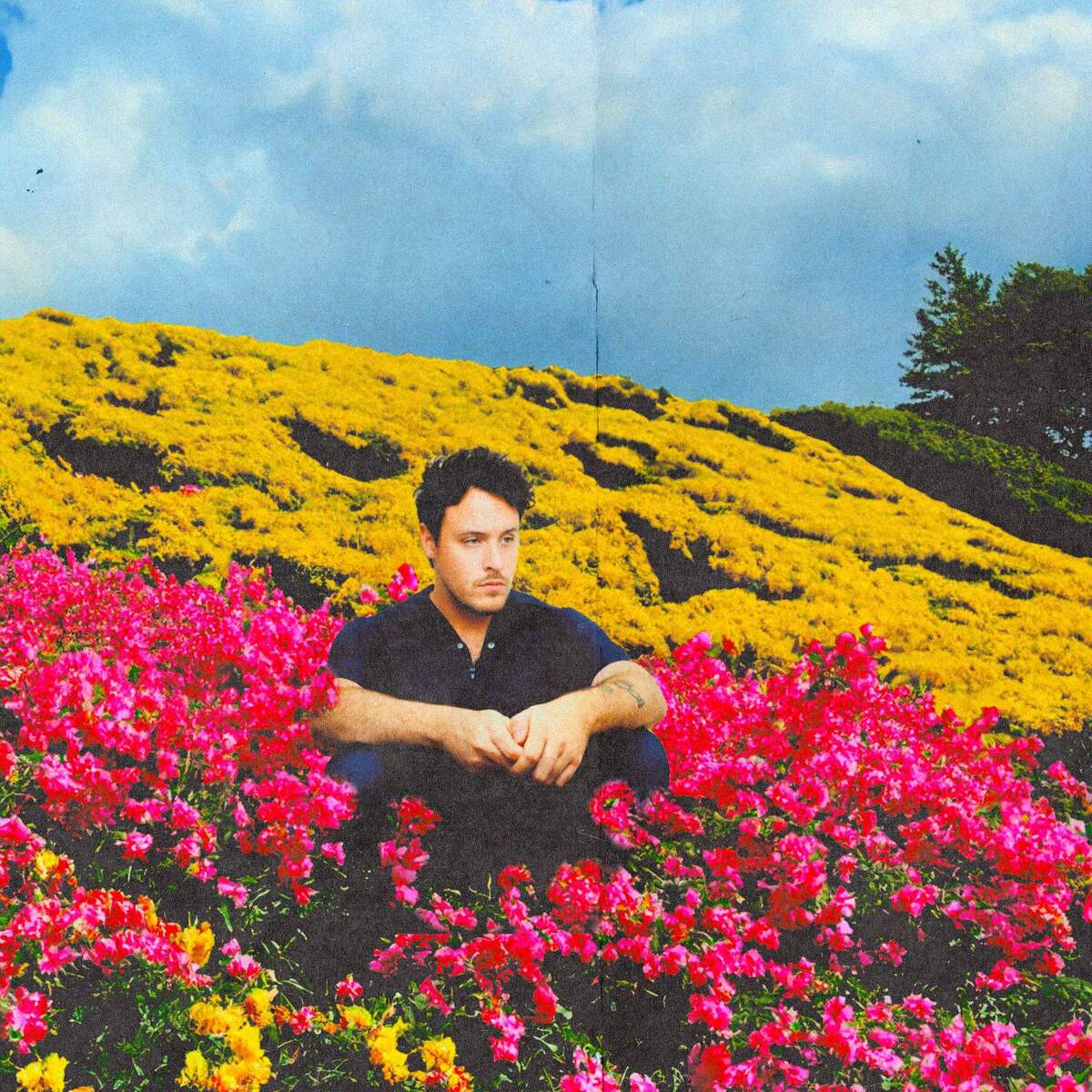
Oops. I meant to end the last comment with, “Thanks for getting to know me Klemen.”